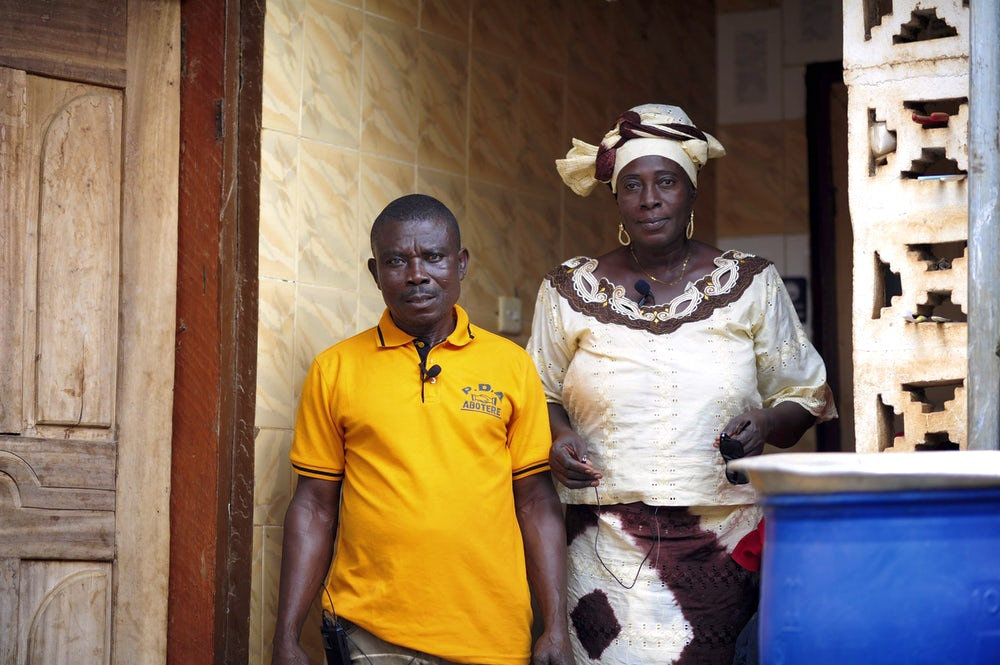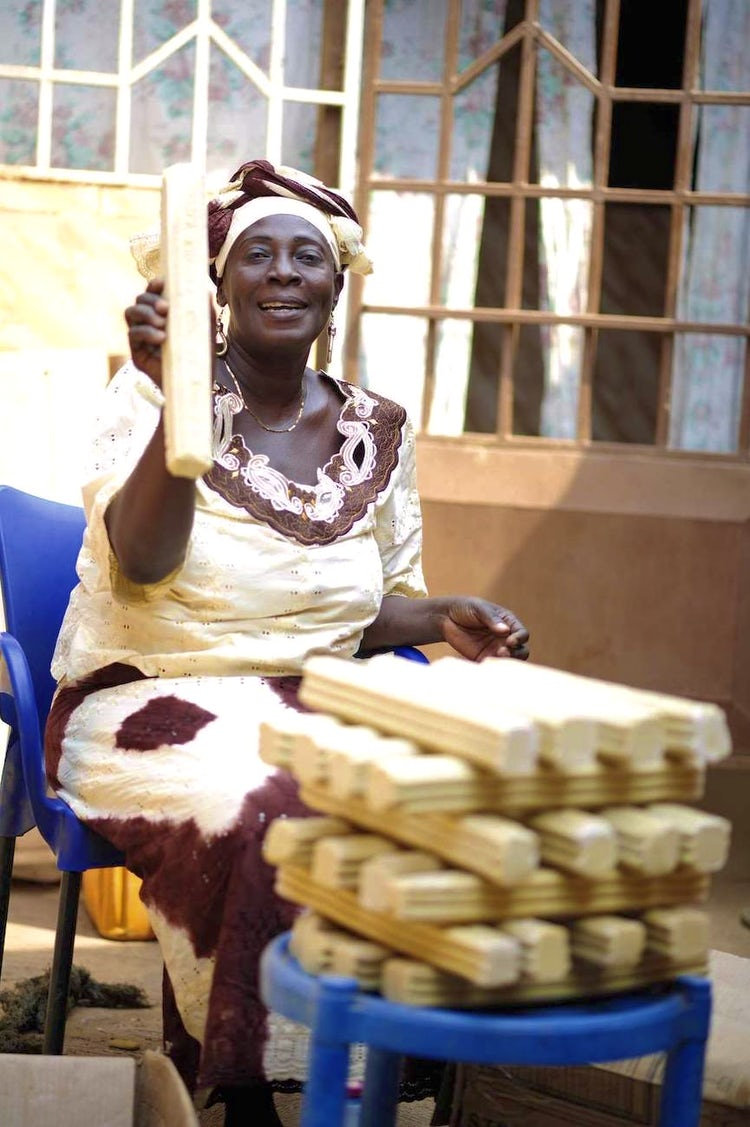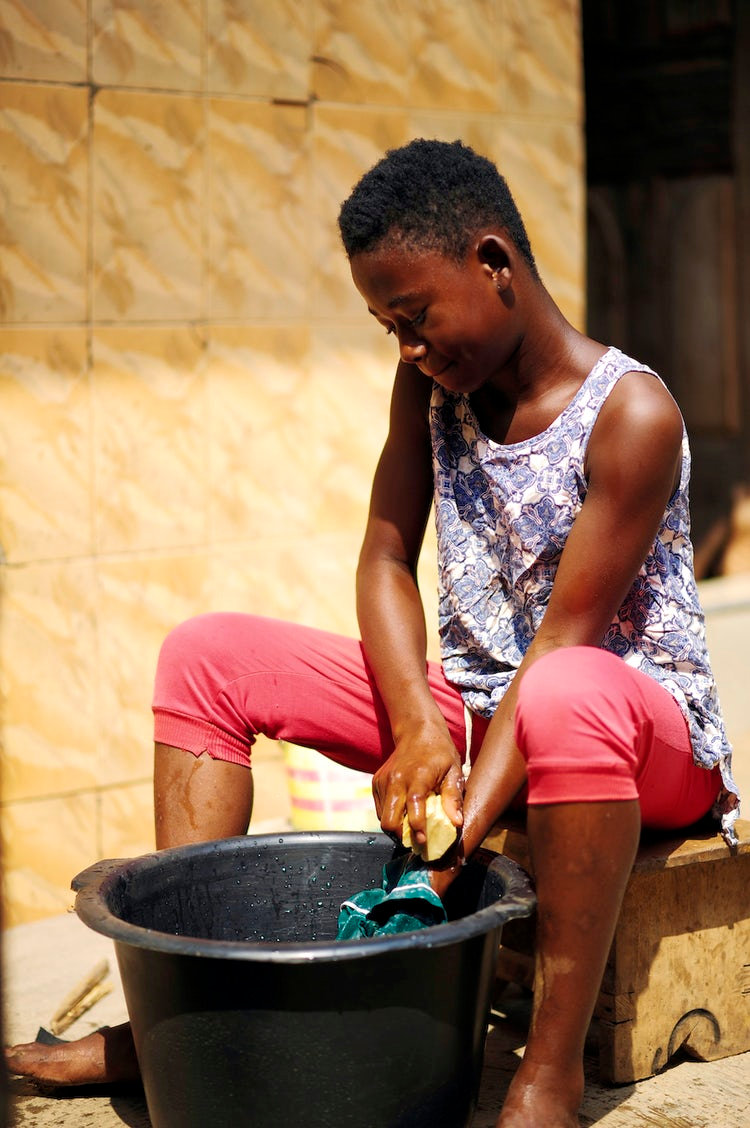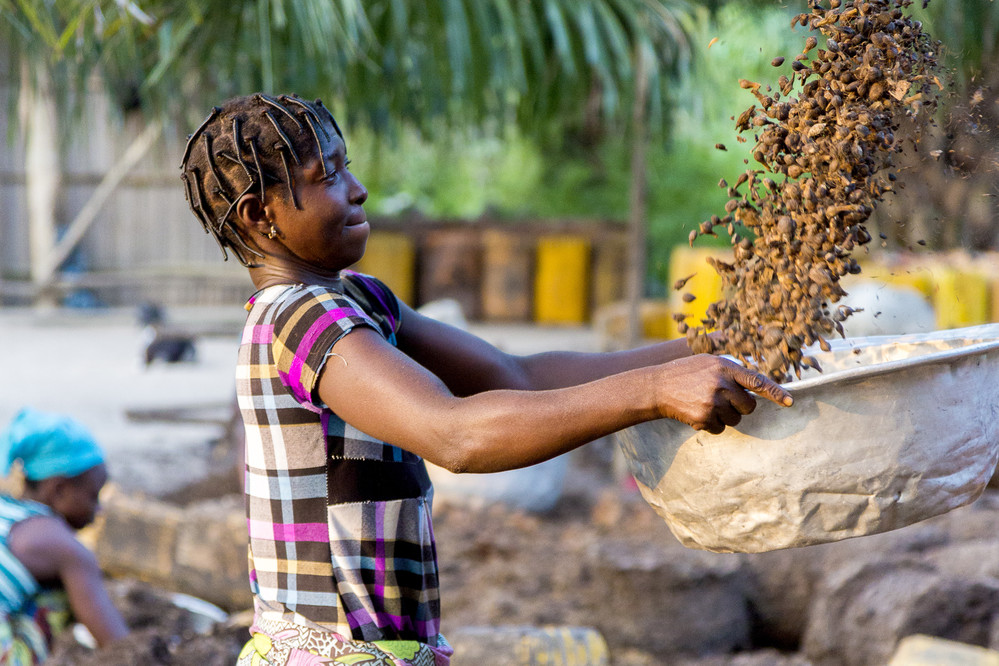For most women in rural Ghana, financial empowerment remains an elusive reality. This was certainly the case for 52-year-old Rose Yeboah, who supported her husband’s work on their small cacao farm in the village of Ahwerewa in Ghana’s Ashanti region. Here the living income, or the amount of money each person in a household needs per day to live a dignified life, is $2.35. But most cacao workers like Yeboah and her husband subsist on little more than $1 a day.

Photo: Heifer International
That is, until Yeboah joined the Forever Chocolate Pilot project and transformed a $357 investment into a soap business that generated over $4,000 of profits in just one year.
Through participation in the project, funded by Barry Callebaut and Heifer International, Yeboah is forging a financial path for herself and her family. And she’s not alone: the programme, which recently concluded, equipped another 302 at-risk cacao farmers with the skills and support to improve their livelihoods by tapping into diverse income-generating opportunities like poultry, soap production and beekeeping.
“Before this support… I did not have my own money,” said Yeboah, who was one of many women who assist their husbands farming cacao, producing a commodity that has formed the backbone of Ghana’s economy since the 1870s. But despite cacao constituting 30% of the country’s export earnings, farmers like Yeboah and her husband experience poverty, endure economic vulnerability and lack access to any meaningful livelihood of their own.
“When you want the best future for your children, it is not always easy,” said Yeboah, a mother of five. “Sometimes you don’t have the means.”
Working in the economically tough cacao industry, they often lacked money for fertilizer. Fiercely determined, kind and self-reliant, Yeboah is fueled by a desire to provide the very best for her children. Supporting her husband on the farm and fronting her own business is born from a belief, she says, in investing in their children’s education.

Photo: Heifer International
Then help arrived
But Yeboah’s luck changed when word of the programme reached her extended family, and she decided to enroll.
With that, the program connected Yeboah with a self-help group of cacao farmers, and she began working closely with a project field officer from Heifer Ghana. Exploring alternative income streams, Yeboah suspected soap production would spell success in Ghana. “We use soap every day,” she said, “and during funerals, people buy and donate soap to the bereaved family.”
And she was right: Following a four-day soap training in her community, Yeboah received an input loan of $357, which she paid off in six months. Her first month of production in March 2020 yielded 54 units of soap. Now, Yeboah’s producing 650 units a month, including liquid soap and hand sanitizer.
“No one has ever done anything like this for me. I am excited about my success in this business,” said Yeboah. “The support and the guidance I received from the field officer really helped me.” Today, she is part of a local soap producer network in Ahwerewa and Gyinenso that produces and sells many varieties of soaps.
Even the pandemic couldn't stop her
Ever conscious of giving back, Yeboah now focuses on supporting women in her group by imparting advice and providing one-on-one coaching to develop their skills in producing soap and hand sanitizer in her community.
Despite the disrupting force of COVID-19, Yeboah stayed the course. “Even during the peak of the pandemic, Heifer continued to support us through remote coaching via mobile phones,” she said, which allowed her to tap into new, diverse opportunities like producing hand sanitizer.
Yeboah distributes hand sanitizer and soap to non-soap producing group members and school children in her community. And where she once helped her husband on the cacao farm, he is now returning the favor for her enterprise.
“I also enjoy the company of my husband when making the soap and have been able to train him to help with cutting and mixing the ingredients,” she said. “I am able to support the cacao farm with some of my profits and [contribute] to my children’s education.”

Photo: Heifer International
Finally empowered to support herself and her family, Yeboah works with four distributors who pick up her soap directly from her home. She is, indeed, living her dream.
This article was originally published by Heifer International.

